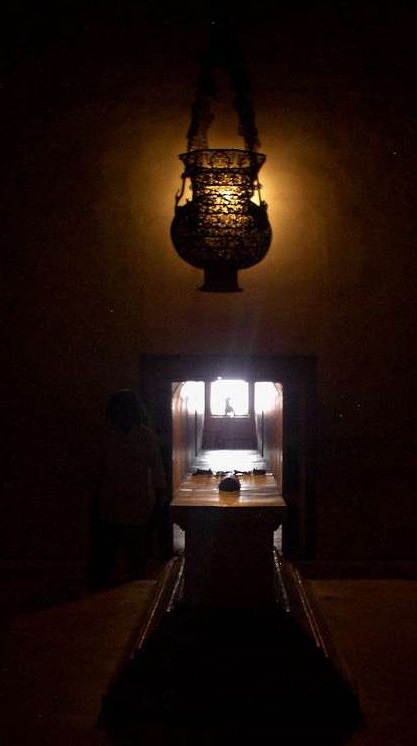FWP:
SETS == EXCLAMATION; REPETITION; STRESS-SHIFTING
On the grammar of dekhaa chaahiye , see {1,3}.
The comparison with {95,6} suggested by Arshi is absolutely perfect. The present verse seems less complex and subtle than {95,6}, but the similarities are very strong.
Depending on where we place the emphasis in the first line, here are some possible readings:
=If this (that is, dying) is his hope, then that person's current state-- of hopelessness and general despair-- must be so extreme that it would be worth seeing.
=If his only hope for achieving some (unspecified) goal depends on his dying, then how utterly, hopelessly miserable he must be to find himself still alive, and as yet unable to die!
=If he hopes for nothing else but death, then what must be his despair of life itself, and how awful his misery at being unable to die!
=If this is his hope, then if we ever had a chance to see his hopelessness, his despair-- what a sight that would be!
=If this is someone's wretched situation even toward hope, then his hopelessness would be uniquely terrible and worth seeing (in a way that nobody else's would be).
Of the three letters in which this verse is quoted, the first two are undoubtedly grim. But the third one, with its amusing imagery of a bird being caught by the alluring bait of a Persian romance, and its wittily rhymed prose, is much more cheerful. It reminds us that Ghalib often quotes his own poetry not just to saturate the letter with its emotional content, but also to show off its literary effects.
Note for meter fans: In {95,6} Ghalib scans ummiid normally, with a tashdiid ; in the present verse, he scans it without one; this is permissible, for metrical convenience.
Inside Akbar's elaborate tomb, his simple grave-chamber:

Ghalib:
[1850, to Haqir:] I owe you the answer to a letter, but what can I do, I'm feeling very grief-stricken and melancholy. Now living in this city displeases me, and so many obstacles and barriers have accumulated that I can't leave it. In short, my sorrow and misery are such that now I live only on the hope of dying [marne kii tavaqqu(( par jiitaa huu;N]. Alas! -- {189,8}.
==Urdu text: Khaliq Anjum vol. 3, p. 1090
==another trans.: Russell and Islam, p.72